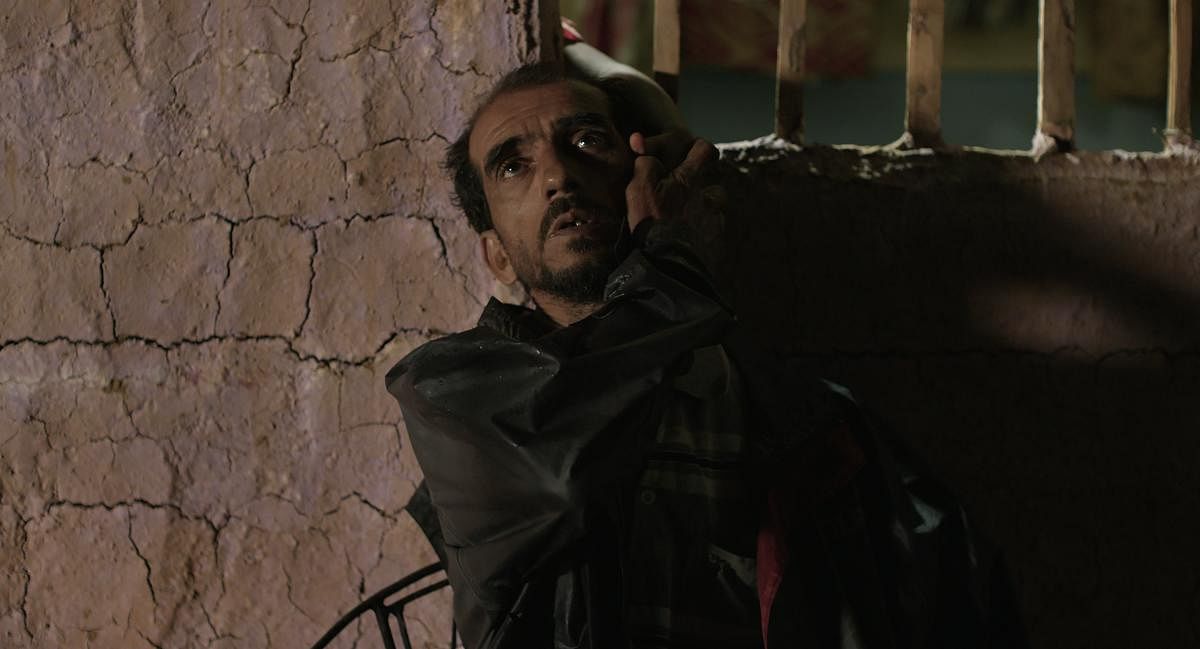Be it life or art, things left unsaid are the most powerful. When a tragedy is left to the imagination of the audience, it keeps haunting them for a long time.
This is exactly what Natesh Hegde’s award-winning movie ‘Pedro’ achieves, with its fine story-telling. It shows only a limited part of the story on screen, some of it with the brilliant use of sounds, even as much more is left unsaid, leaving the cinema to play out in the viewer’s head. The Kannada film was screened for the first time in public on Sunday at Bengaluru Bengali-Kannada Film Festival.
Pedro is set in an area comprising rain-soaked natural forests and cultivated farmlands in the Western Ghats. The human-animal and human-nature conflicts are integral parts of the movie. (Spoilers ahead!)
Pedro (Gopal Hegde), who assists an electrician in fixing power problems occurring amid incessant rains, accepts the job of guarding the farmland of the landlord Hegde (Ramakrishna Bhat Dundi). Pedro’s dog dies consuming the poison kept to kill the wild boar. A drunk Pedro, who wows to kill the boar, instead kills the landlord’s cow and the error proves costly.
A vigilante who has migrated to the area and settled down there, played by Raj B Shetty, bullies Pedro, calling him a cow-killer. Pedro stops tolerating it when the vigilante targets his religious identity and alienates him. The village and the head do not disown Pedro early on but it begins to happen gradually.
But the most powerful reason behind Pedro’s doom is something very basic, beyond any political rhetoric. “What will people say if he looks like me when he grows up?” This one dialogue from the landlord gives an unexpected twist to the movie in the most unassuming yet shocking manner, also leaving the audience in splits.
“Pedro has lost his mind and suspects you having a relationship with Julie,” tells Bastyaya (Nagaraj Hegde), Julie’s husband who is impotent. This rattles the image-conscious landlord. And the whole story gets a sinister turn.
The cow’s presence is felt only by its sound while dying and by the shots showing its legs when the village’s Dalits carry it after it is dead. The folk dances, Yakshagana and cultural programmes in the village show the diversity in the village, yet the undercurrent of power equations is evident in all of them. The toxic masculinity, patriarchy and feudal system are portrayed in an unpretentious manner. Most characters except Pedro are full of shades of grey, thereby lending the movie a subtle noir feel.
In fact, the Vali Vadhe in the Yakshagana scene is a subtle foreshadowing tool. In the story picked from Ramayana, Sugreeva gets his brother Vali killed by Rama and regains
his kingdom and wife.
The movie feels slow and it isn’t bereft of stereotypes but the audience needs to trust the filmmaker and his pace of filmmaking to see what the movie is all about. The long shots edited to near-perfection transport us into Pedro’s world. There are many parallels here to draw with Apichatpong Weerasethakul’s 2021 drama ‘Memoria’, which has a similar sound design and visual style.
Emotions displayed by the actors are subtle, even in tragic or grave situations. Subdued performances keep the drama alive — having no drama itself is the drama here.
The poetic end with shots of high-tension power transmission lines and a tower leaves the audience with a sense of uneasiness. At the same time, the movie also adds to the hopes
of an era of world-class Kannada cinema.
"I don’t want to underestimate my viewers. You (the viewer) and I together make the cinema. A lot of it plays out outside the screen,” said Natesh Hegde in an interaction session after the screening.
Natesh’s next is ‘Vaghachi Pani’, again backed by Rishabh Shetty Films. The film’s screenplay has got selected to compete in the Asian Project Market 2022 edition. The final award will be announced in October.
